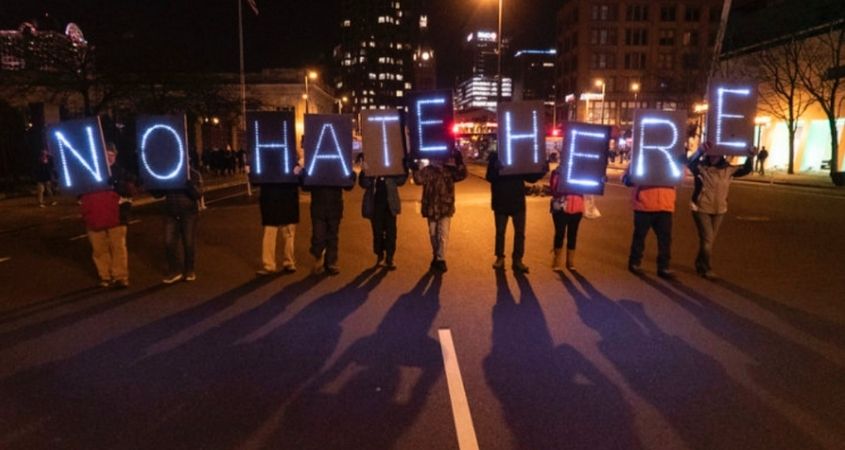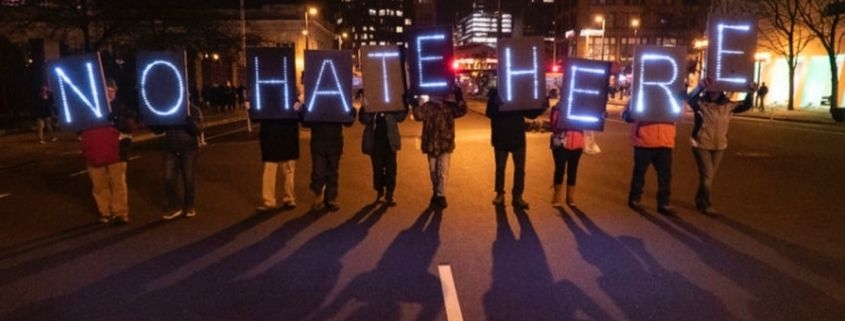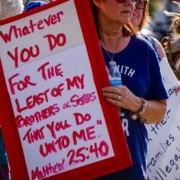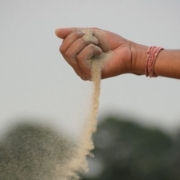Day 32: Taking Heart, Re-Engaging, and Remaining Confident
BY DR. NATHAN J. SESSOMS | April 2, 2022
Today’s Readings
Renowned poet, author, and civil rights activist, Maya Angelou, once said, “When people show you who they are, believe them the first time…”
This quote makes perfect sense and serves as a suitable strategy rooted in our very real need to protect ourselves from oppression and marginalization. I certainly have no problem admitting that I have, at times, adhered to this strategy in my personal dealings with others. More recently, however, in serving as a diversity consultant and having been raised Catholic, I’ve begun to rethink this strategy, particularly with respect to my spiritual journey. I have come to see that, as a believer, my calling is much more complex and difficult.

In today’s first reading and responsorial psalm, we are reminded that, while following Jesus and demonstrating love, empathy, and compassion to others, we will, at times, find ourselves in danger—perhaps not physical danger—but we will often be misunderstood, taken for granted, unappreciated, devalued, and maybe even dehumanized in our parishes, places of employment, and our own homes. However, the reading also reminds us that God is with us and, in our times of despair and anguish, will always protect us. Therefore, as faithful servants, we can continue to engage in the work we are called to do, while demonstrating resilience and perseverance.
Meanwhile, today’s Gospel reading describes a specific situation in which we may find ourselves. Particularly for those of us who have answered the call to create a more just and equitable society, our bold willingness to speak-up, stand-up, and show-up for justice and liberation could make others—our supervisors and co-workers, cherished friends, and beloved family members—very uncomfortable. Ultimately, they may be unwilling to even consider our message of acceptance and love for all people, its links to the tenets of Catholic Social Teaching, and its direct associations with the life of Jesus, which serves as a glaring example of activism through His consistent engagement with those who were deemed outcasts in society.
In these moments, we must harden not our hearts. Instead, we must take heart, replenish our spirits, and re-engage armed with the faith and confidence that we are—at all times—protected by God.
For Reflection:
- Why might it be difficult for you to embrace Christ’s message of acceptance and love of all people?
- What fears serve as barriers to your engagement with your calling to create a more just and equitable society? What can you do to overcome them?









Embracing God’s acceptance and love of all people comes to me through the practice of the Ignatian exercises. The acceptance begins with love of oneself and then reaching out to all others. The acceptance of oneself with all the flaws and failures comes from our willingness and hope in the acceptance, It doesn’t happen overnight but takes time and willingness to surrender to the will of God. This surrender helps me realize the importance of accepting all others – those same flaws and failure we accept in ourselves are the ones we must embrace in others. Each time I ask God for the graces to do His will, the acceptance of others becomes easier, so today I ask God for those graces to be with all His creatures in a way that makes the community and world just a little bit kinder, compassionate, willing to listen, willing to support and willing to be embraced by Father, Son and Holy Spirit.
Very Good. Feel the same.
God bless you,
Héctor
Thank you, Héctor! God bless you and your family, as well.
I feel deep shame when Muslim women describe how others treat them in a Catholic state. How they are afriad to go out in the street, because other women turn away from them, and refuse to acknowledge their existence.
I feel admiration for teen Muslim girls who are proud to wear their hajib in a foreign country and refuse to leave their home without wearing it. Even though their mothers say it is not necessary in a European country.
In that country I was perceived by other Catholics to be Muslim. Because I visited Muslim families, I must be Muslim. I couldn’t possibly be Catholic to do such a thing in a country where children in school are taught to be afraid of and hate Muslims. I dared to do such a thing. It pained me that no one wanted to know the way Muslims were being treated during lockdowns. Catholic society simply didn’t care that other human beings were being traumatised in their own land. It was good riddance to terrorists. Yet they were not terrorists. They were honest, humble people who prayed five times a day to God and were punished for being who they were. How humbling to hear from them that they wished they had never come to the West, if they knew how they would be treated. That facing war in their own land was infinitely better than the way Europe had treated them. At least back home they had their families and could live and die together. Yet, having been granted European citizenship, they were forbidden to return home and would forever be separated from their loved ones and families.
Thanks Nathan. You have said so many nice and doable things in this article. I am reminded of what my leprosy survivors say: ‘With fearless minds and confidence in our wrists, we can think the unthinkable and do the undoable’.